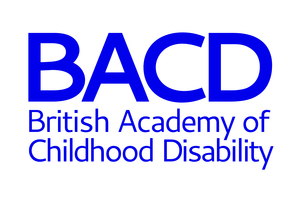Position statement from the British Academy of Childhood Disability
Services for children and young people with disabilities during COVID-19
28th August 2020
As the threat of a second wave of COVID-19 looms and the UK Government is considering ways to respond, it is important to emphasise the damage that lockdown and closure of schools and community services has caused to the health and wellbeing of children and young people, particularly those with disabilities and social vulnerabilities.
It is extremely rare for children and young people to develop serious illness from COVID-19, as data on the website of the Royal College of Paediatrics and Child Health (1) demonstrates.
The damage to children and young people’s health has come from the strategies we erroneously followed in the first wave:
Paediatricians across the country are raising concerns about the delayed presentation of children and young people to medical services with health conditions, and with the consequences of child abuse during lockdown (2).
Children and young people with disabilities have suffered from a lack of therapy, as community therapists, and community child health and paediatric neurodisability trainees have been deployed to work in acute settings, in roles which do not use their skills and expertise. There has been a lack of review of home equipment for children and young people, and loss of short break services, in addition to the loss of their educational opportunities. The lack of routine, outside exercise, social contact and stimulation has affected sleep, mood and behaviours which continue to overwhelm families, community paediatric and CAMHs services (3).
Services for children and young people, particularly those with disabilities, have been disproportionately affected by the recent years of austerity (Horridge et al. 2018) (4) and need to be protected and expanded.
We need now to ensure that families have clear information and reassurance that the risks to children and young people from COVID-19 infection are very low. Hardly any children and young people, even those with co-morbidities, will need to be shielded in a second wave.
Children and young people should attend school, and families should not be afraid to seek medical advice as usual.
Going forward, schools must remain open and community paediatric services, including therapy and short breaks, must be maintained.
British Academy of Childhood Disability
References
1 https://www.rcpch.ac.uk/resources/covid-19-service-evaluation-audit-care-needs-children-admitted-hospital-england
2 Green Peter. Risks to children and young people during covid-19 pandemic. BMJ 2020;369:m1669 https://doi.org/10.1136/bmj.m1669
3 https://disabledchildrenspartnership.org.uk/left-in-lockdown/
4 Horridge KA, Dew R, Chatelin A, et al. Austerity and families with disabled children: a European survey. Dev Med Child Neurol. 2019;61(3):329-336. https://onlinelibrary.wiley.com/doi/abs/10.1111/dmcn.13978

